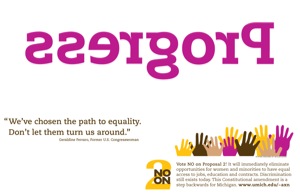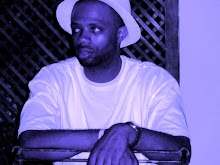
I'm guilty of it. You're probably guilty of it, you know, it usually goes something like this "I listen to hip-hop, not rap." The distinction between hip-hop and rap is one that "heads" have been making for years. While there are number of nuanced arguments about Hip-Hop as a culture,
the hip-hop versus rap dichotomy is outdated and useless.So the gist of the argument is usually any commercial rap music is classified as "rap" and anything that may be underground or semi-authentic is "hip-hop." The water usually gets murky when you ask about folks who have cross over appeal, but ya'll know what I mean. I recently realized, I can no longer do this bullshit distinction between hip-hop and rap. First let me make it clear, I'm not saying that I can't tell some difference between the two. This doesn't mean that I don't watch 106 and Park with a pain in my stomach. None of that changes, but my decision is one that is much like many disgruntled married couples, I can't split (hip hop from rap)... because of the children.
When I first started spewing the distinction it was in cinder block dorm rooms, but now that I hear the argument I hear it on TV, on websites, in blogs. As someone who considers himself somewhat of a scholar of Hip-Hop, I can appreciate a theoretical distinction. But I'm trying to look at it from the bottom up, not top down. I really started thinking about this distinction when I was reading
blac(k)ademic's post on
NYOil's video "Ya'll should all get lynched".
Over at blac(k)ademic NYOIL's video and comments have created quite a stir. In reading through I recalled that people like to distinguish between hip-hop and rap. As someone who consumes more hip-hop than rap, I can honestly say, they're not all that different. Let me go through my issues Rolodex: misogyny - check, homophobia - check, violence - check, drugs - check (yes, weed counts), foul language - check, materialism - check (yo rapping about your sneakers counts too!).
So what's the deal with pretending like hip hop music is the holy grail and rap is a red keg cup? Maybe I've just been reading into to it too much but so much of our quest for authenticity in Hip-Hop now is social class related. Do you think it's a coincidence the only location you can still hear hip-hop on the airwaves is college radio or satellite radio? I remember a couple years ago hearing someone say, "Hip-Hop didn't die, it just moved to Long Island and wears a backpack." Let's be real, if you've been to a hip-hop show anywhere in the US in the past 10 years you know like Common said, "When we perform it's just coffee shop chicks and White dudes." The quest for the latest hip-hop takes us to message boards, to overpriced coffee houses, and to Tuesday night performances at our local blind pigs. There's something peculiar about that to me. If we're so hip-hop and the music is the music of the people, why don't I see my people in those spaces? Could it be that my people are in a different place?
At the opening of NYOIL's video you see an image of Cam'ron. Now I will admit that I'm not a huge Cam'Ron fan, but I do listen to some of his stuff.
Aside - Want a fun game? Here it go! I try to see how many "Cam'Ron lines" I can make up using Ben and Jerry's ice flavors- try it! Here's a head start, "I was chilling with a married mocha honey, her man walked in, so I chubbied the hubby."Sorry, like I was saying, many hip-hop heads don't really mess with Cam'Ron but you know who does? Black youth! Please just go up to Harlem and see if Dip Set isn't an epidemic. See if they aren't
Chicken Noodle Soupin', see if in Atl they're not Snappin and getting Beamed up. My friends, the music that is reaching our kids is no longer
Self-Destruction, it's more Shake Sumthin'. If that is where youth are, if that is where the future is, if that is who is supposed to be affected by the Hip-Hop movement, that's where I need to be, if I truly care.
Now being there doesn't mean you have to support all that it is, but it's foolish to hold onto something that is marginal and disconnected from our youth.
Trust me, I feel like I'm part-time hip-hop librarian because I always have to go into the annals to find songs that concentrate on a single issue that I can use with youth on social issues. It means that we gotta meet Black youth where they are at and move them forward from there. It means talking to them about why NYOIL makes a song like this and then walking through the history of the figures he mentions, the history of lynching, and the histories of power. In that process you're going to challenge whoever made the original song, but music is a gateway to our social world, not a perfect explanation.
We can take songs like this as an opportunity to reach more youth or we can continue to turn up our noses and say we listen to hip-hop and not rap. I think NYOIL understands something that KRS didn't. I think Dead Prez understands something that PE didn't. I think Little Brother understands something that you don't. You can speak to people without preaching to them. That should have been the message we got from "The Message." Instead, we're left dropping crazy diatribes about neoliberalism to White kids in Schenectady. I think in 2006 we have to be ready to approach hip-hop and its potential differently than we have the past 10 years. Realize if Hip-Hop is the culture, the music that still gets to people is rap.

















